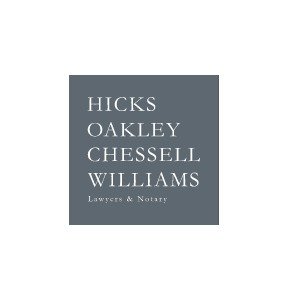Best Child Abuse Lawyers in Mount Waverley
Share your needs with us, get contacted by law firms.
Free. Takes 2 min.
Free Guide to Hiring a Family Lawyer
List of the best lawyers in Mount Waverley, Australia
About Child Abuse Law in Mount Waverley, Australia
In Mount Waverley, Australia, child abuse is a serious offense and is treated with stringent measures. Child abuse encompasses a range of actions and inactions that harm or risk harming a child's wellbeing. This includes physical, emotional, and sexual abuse, as well as neglect, and can be perpetrated by parents, caregivers, or anyone in a position of trust towards the child. The government and legal system are actively invested in protecting children from abuse, thus, laws and provisions have been implemented to address and prevent such occurrences.
Why You May Need a Lawyer
Whether you're a victim, accused, or a concerned third-party, handling child abuse cases can be complex and emotionally taxing. Lawyers can navigate the legal processes, ensure your rights are upheld, and help you understand important information. For victims and their families, a lawyer can guide them through the reporting process, civil suits, or when dealing with child protection agencies. For people accused of child abuse, legal counsel can defend your rights, present your case, and guide through potential criminal proceedings.
Local Laws Overview
Child abuse laws in Mount Waverley fall under the larger umbrella of Australian law. Australia operates under mandatory reporting laws, meaning certain professionals are required to report suspected cases of child abuse. It is also illegal to physically or sexually abuse a child, emotionally harm them, neglect their needs, or expose them to domestic violence. Serious penalties, including imprisonment, are associated with these offences, and child protection agencies often intervene to ensure the child's safety.
Frequently Asked Questions
What is considered child abuse in Mount Waverley?
Child abuse is any action or inaction, by a parent, caregiver, or any individual which leads to the physical, sexual, or emotional harm or risk of harm to a child. It also includes neglect, being left without adequate care or necessities, and exposure to domestic violence.
How does the reportage of child abuse work?
Reports of child abuse can be made by anyone who suspects a child is being harmed. They can go to the police or directly to a child protection agency. If you're a mandatory reporter, like a teacher or health professional, you're legally obligated to report suspicions of abuse.
What happens after child abuse has been reported?
A child protection agency will typically conduct an investigation to assess the child's situation. This might involve interviews or observations. Depending on their findings, the agency might take various actions, including removing the child from the harmful environment.
What are the penalties for child abuse?
Penalties for child abuse vary depending on the severity and type of abuse, but can include imprisonment, fines, or both. Parents or guardians may also lose custody or visitation rights.
Can a child abuse victim sue their abuser?
Yes. Crime victims, including child abuse victims, may sue their perpetrators for the harm they suffered. This typically involves a civil lawsuit.
Additional Resources
Those dealing with child abuse can reach out to the Department of Human Services for support. The Victorian Child Protection Service is also a key agency for intervention in child abuse cases. Local community services and schools also have resources to offer. A criminal lawyer or a family lawyer with experience in child abuse cases can provide valuable advice specific to your situation.
Next Steps
If you need legal assistance in a child abuse matter, seek the advice of a skilled lawyer as soon as possible. Collect and preserve any evidence related to your case, and be prepared to cooperate fully with child protection agencies or law enforcement officials, as appropriate. If possible, reach out to local support services for additional help and resources.
Lawzana helps you find the best lawyers and law firms in Mount Waverley through a curated and pre-screened list of qualified legal professionals. Our platform offers rankings and detailed profiles of attorneys and law firms, allowing you to compare based on practice areas, including Child Abuse, experience, and client feedback.
Each profile includes a description of the firm's areas of practice, client reviews, team members and partners, year of establishment, spoken languages, office locations, contact information, social media presence, and any published articles or resources. Most firms on our platform speak English and are experienced in both local and international legal matters.
Get a quote from top-rated law firms in Mount Waverley, Australia — quickly, securely, and without unnecessary hassle.
Disclaimer:
The information provided on this page is for general informational purposes only and does not constitute legal advice. While we strive to ensure the accuracy and relevance of the content, legal information may change over time, and interpretations of the law can vary. You should always consult with a qualified legal professional for advice specific to your situation.
We disclaim all liability for actions taken or not taken based on the content of this page. If you believe any information is incorrect or outdated, please contact us, and we will review and update it where appropriate.








